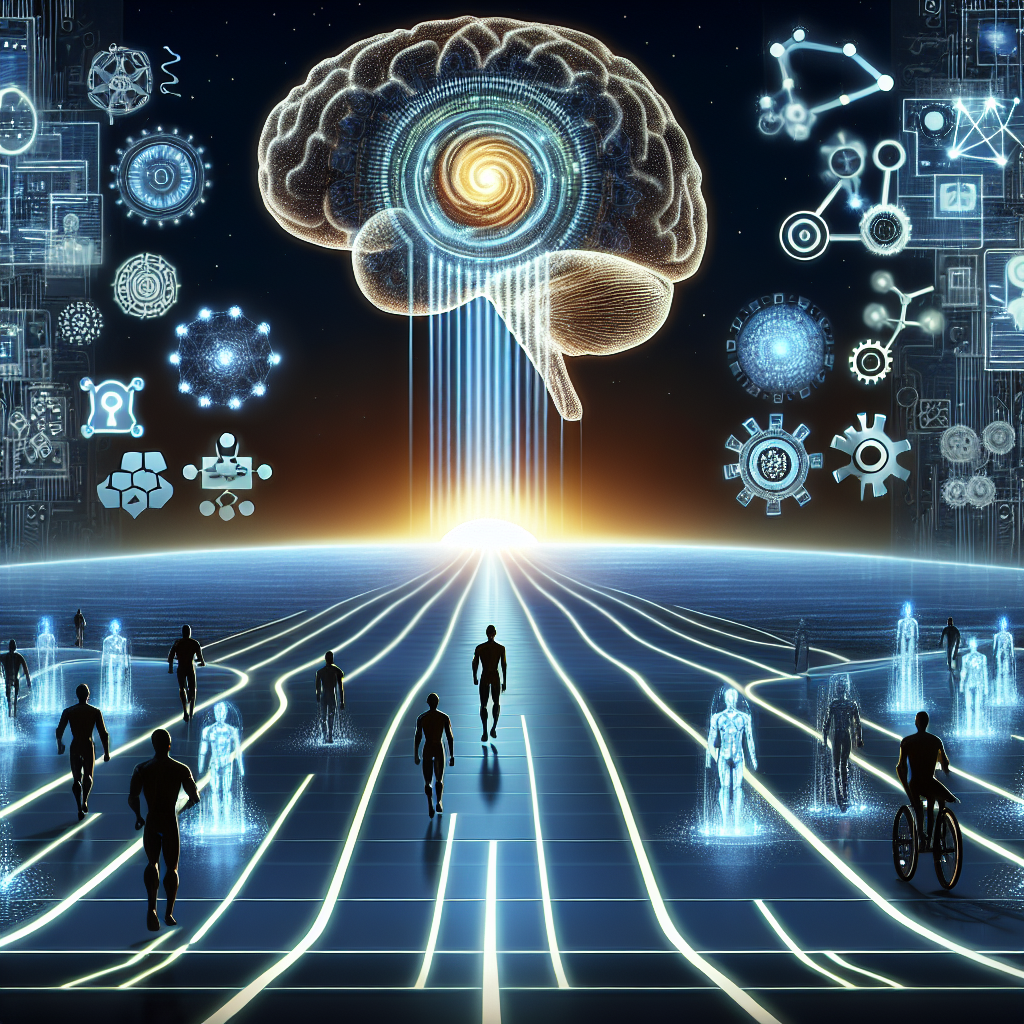The Race to Achieve AGI: Who Will Lead the Way?
Artificial General Intelligence (AGI) is a technology that has long been the subject of speculation and fascination. AGI refers to a type of artificial intelligence that is capable of understanding and learning any intellectual task that a human being can. Unlike the narrow or specialized artificial intelligence that we are familiar with today, AGI is expected to have the ability to perform a wide range of tasks, think creatively, and even possess consciousness. The race to achieve AGI is heating up, with several companies and research institutions around the world vying to be the first to reach this monumental milestone. In this article, we will explore the current state of the race to achieve AGI, the key players involved, and the potential implications of achieving this revolutionary technology.
The Current State of AGI Research
While AGI remains a distant goal, significant progress has been made in the field of artificial intelligence in recent years. Breakthroughs in machine learning, neural networks, and deep learning have enabled AI systems to perform tasks that were once thought to be the exclusive domain of human intelligence. From self-driving cars to virtual assistants, AI is becoming increasingly integrated into our daily lives.
However, the road to AGI is still fraught with challenges. One of the biggest hurdles is developing AI systems that can generalize across a wide range of tasks and adapt to new situations. Current AI systems are often specialized and lack the flexibility and creativity of human intelligence. Researchers are also grappling with ethical concerns surrounding the development of AGI, such as the potential for job displacement and the implications for privacy and security.
Key Players in the Race to Achieve AGI
Several companies and research institutions are leading the charge in the race to achieve AGI. One of the most prominent players is OpenAI, a research organization co-founded by Elon Musk and Sam Altman. OpenAI is dedicated to developing artificial general intelligence in a safe and beneficial way. The organization has made significant contributions to the field of AI, including the development of GPT-3, a powerful language model that has garnered widespread attention for its ability to generate human-like text.
Another major player in the AGI race is DeepMind, a subsidiary of Alphabet Inc. (the parent company of Google). DeepMind is known for its groundbreaking work in deep reinforcement learning, a technique that enables AI systems to learn complex tasks through trial and error. The company made headlines in 2016 when its AlphaGo program defeated the world champion Go player, Lee Sedol, in a historic match.
Other companies that are actively pursuing AGI include IBM, Microsoft, and Facebook. IBM’s Watson project has made significant strides in natural language processing and machine learning, while Microsoft’s research division is exploring ways to make AI more human-like and intuitive. Facebook is also investing heavily in AI research, with a focus on developing AI systems that can understand and generate natural language.
Implications of Achieving AGI
The implications of achieving AGI are vast and far-reaching. On the one hand, AGI has the potential to revolutionize every aspect of our lives, from healthcare and education to transportation and entertainment. AI systems with human-level intelligence could assist doctors in diagnosing diseases, teachers in designing personalized learning experiences, and engineers in designing more efficient systems.
However, the advent of AGI also raises profound ethical and societal questions. As AI systems become more intelligent and autonomous, they may surpass human capabilities in many areas, leading to widespread job displacement and economic disruption. There are also concerns about the misuse of AGI for malicious purposes, such as autonomous weapons and surveillance systems.
FAQs
Q: When will AGI be achieved?
A: It is difficult to predict when AGI will be achieved, as the development of artificial intelligence is a complex and unpredictable process. Some experts believe that AGI could be achieved within the next few decades, while others think it may take much longer.
Q: Will AGI be safe?
A: Ensuring the safety of AGI is a top priority for researchers in the field. Organizations like OpenAI are working to develop AI systems that are aligned with human values and goals, in order to minimize the risks associated with AGI.
Q: What are the potential benefits of AGI?
A: The potential benefits of AGI are vast and varied. AI systems with human-level intelligence could revolutionize healthcare, education, transportation, and many other fields, leading to more efficient and effective systems.
Q: What are the potential risks of AGI?
A: The risks associated with AGI include job displacement, economic disruption, ethical concerns, and the potential for misuse of AI for malicious purposes. Ensuring that AGI is developed in a safe and beneficial way is crucial to mitigating these risks.
In conclusion, the race to achieve AGI is well underway, with several companies and research institutions pushing the boundaries of artificial intelligence. While the road to AGI is fraught with challenges, the potential benefits of achieving this revolutionary technology are immense. However, it is crucial that we proceed with caution and foresight, in order to ensure that AGI is developed in a safe and beneficial way. By addressing the ethical, societal, and technical challenges of AGI, we can harness the full potential of artificial intelligence for the betterment of humanity.

